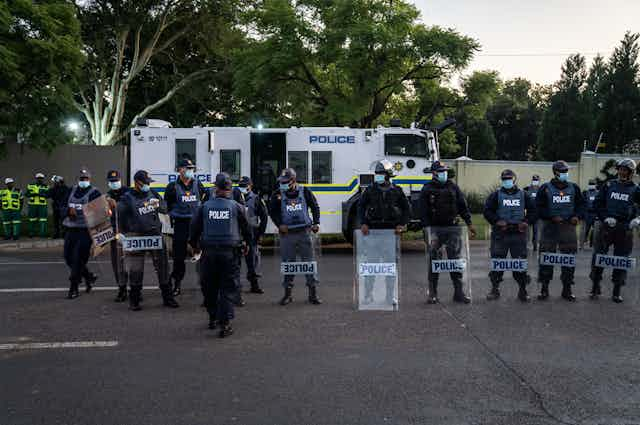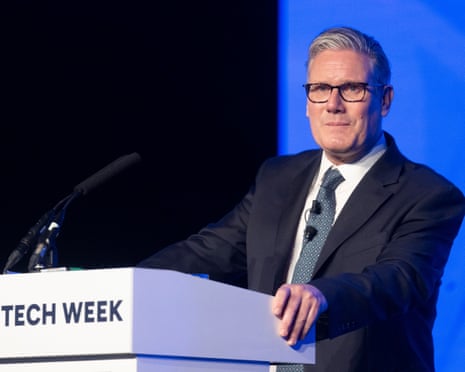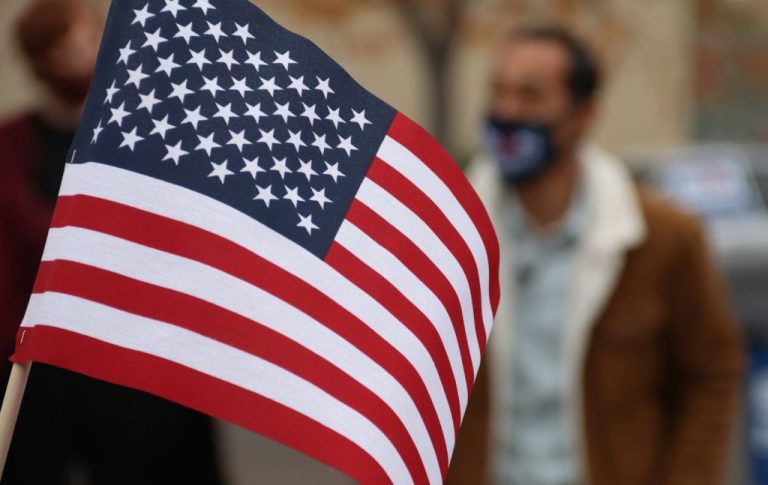Revamping the Reputation: Strategies to Improve South Africa’s Capital Police Image
Corruption within South Africa’s public institutions has been a significant concern for the last two decades. From national government entities to local municipalities, the narratives of officials exploiting their positions for personal gain have become all too common.
The Tshwane Metropolitan Police Department, tasked with traffic enforcement, crime prevention, and by-law implementation in the nation’s capital, has not been immune to this crisis.
With over four million inhabitants spanning 6,298 square kilometers, Tshwane plays a crucial role in the political and economic framework of South Africa. However, its municipal police department—one of the country’s largest, with around 4,000 operational staff—is increasingly linked to allegations of bribery, power abuse, and unethical conduct.
As a postdoctoral researcher specializing in criminal justice and a dedicated social justice advocate, I examined how corruption within the Tshwane Metropolitan Police Department is eroding public trust and jeopardizing law enforcement and crime prevention in a recent research paper.
My observations of the Tshwane Metropolitan Police Department were made both as a motorist and as an employee within the city’s Community and Social Development Department. This study was grounded in textual and contextual analysis derived from my experiences and previously published evidence, omitting the need for special permissions, but including proper citations.
The findings reveal a troubling perception among motorists, who regard the Tshwane Metropolitan Police Department as more of a predatory force than a protective one. The corruption taking root amongst traffic officers signifies a betrayal of public trust. When officers engage in bribery instead of enforcing traffic regulations, it directly compromises road safety.
Inside the Tshwane Metropolitan Police Department
In recent times, the Tshwane Metropolitan Police Department has faced accusations concerning the recruitment of individuals with criminal backgrounds and ongoing corrupt practices.
My primary observations highlighted several concerning issues:
- Hiring practices: Individuals with criminal histories have been recruited into the department. Even though vetting is conducted, findings are typically reported only after individuals are already on the job, leading to their eventual termination.
- Bribery: Motorists frequently report incidents where officers solicit bribes during routine traffic stops or related encounters. Some complaints are directed to the mayoral committee member for community safety.
- Lack of accountability: Officers implicated in corrupt actions often evade dismissal and may only face minimal penalties.
- Public complaints: Over 200 officers have recently faced investigations for various allegations of misconduct.
Political Interference and Leadership Instability
During my research, I identified that a significant factor undermining the efficacy of the Tshwane Metropolitan Police Department is political meddling in operational matters and leadership selections. The structure of the municipal government contributes to this, as all mayoral committee executives and council members are political appointees.
The continuous reshuffling of senior leadership driven by political motives rather than merit diminishes the strategic direction and nurtures corruption. Often, politically connected individuals secure positions without thorough vetting due to slow report processes or human resource practices that overlook pending evaluations.
This environment, marked by inadequate oversight and political interference, allows corruption to flourish and, in some instances, become normalized.
Impact on the Capital City’s Global Image and Tourism
The corruption present in the Tshwane Metropolitan Police Department not only affects local citizens but also tarnishes Pretoria’s standing as the administrative capital of South Africa, hosting numerous embassies from around the globe.
With more than 130 foreign diplomatic missions—second only to Washington, D.C.—the conduct of municipal police officers significantly impacts the city’s international image. When officers solicit bribes or misuse their authority during routine interactions, they do not differentiate between local residents, foreign diplomats, or tourists. This indiscriminate behavior can cultivate an unsafe atmosphere for international visitors and erode trust among foreign nations interacting with South Africa.
Necessary Reforms
Tackling corruption within the Tshwane Metropolitan Police Department demands immediate reforms. Based on the research findings, I propose that the following steps are crucial:
- Stricter recruitment protocols: Mandatory background checks for all officers, disqualifying those with criminal records from serving.
- Body cameras and digital monitoring: Implementing body cameras to provide an objective record of officer-public interactions.
- Independent oversight: Establishing an external body to investigate complaints and enforce accountability. While the South African Police Service Act 68 of 1995 governs municipal policing, the Independent Police Investigative Directorate appears under-resourced.
- Ethics training: Regular training for all officers emphasizing integrity and professionalism, building on existing training provided through the Police Academy and universities like the University of Pretoria.
- Community collaboration: Fostering partnerships between the Tshwane Metropolitan Police Department and local communities to restore public trust and enhance transparency.
Municipal Policing Law
Rebuilding public confidence entails more than superficial reforms; it requires a new legal framework.
A South African Municipal Policing Act could establish a unified standard for municipal policing nationwide, addressing several root causes of corruption. This proposed legislation might include:
- National registry for municipal police officers: A centralized database for tracking applications, criminal background checks, disciplinary history, and performance evaluations of all municipal officers.
- Uniform ethical standards: Clearly defined ethical guidelines to be universally applied to all municipal police officers, irrespective of their location.
- Independent oversight body: An investigative entity solely focused on municipal policing.
- Mandatory pre-vetting processes: All applicants subject to fingerprint-based criminal record investigations.
- Cross-municipal blacklisting: Officers dismissed or suspended from one municipality should be automatically barred from employment in another.
- Digital recording systems: Equipping all municipal police vehicles and personnel with body cameras and GPS tracking systems to enhance accountability.
A comprehensive framework like this would close loopholes enabling corrupt officers to shift between municipalities undetected and prevent the recurrence of individuals with criminal backgrounds in policing roles.





